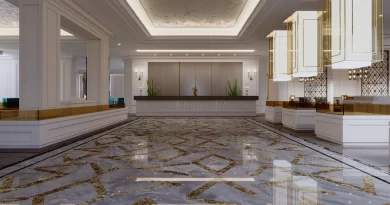Tile Vs Vinyl Flooring – Making the Right Choice
Flooring choices can have an immense effect on a home’s aesthetics and real estate resale value, from tile to vinyl – each option offers different durability, cost savings and aesthetic benefits.
Tile stands out in terms of longevity – it can easily last decades with proper care and maintenance. Plus, its durability allows it to withstand abuse without getting damaged!
Durability
Tile is an incredibly hard and long-term flooring choice, suitable for most situations (though ceramic tile could shatter when dropped onto concrete subfloor).
Vinyl flooring is also durable and tough, though not to the same degree as tile when it comes to moisture resistance; thus it makes an excellent choice for kitchens rather than bathrooms where humidity may pose problems for vinyl.
Vinyl floors have long been known to off gas, releasing harmful substances into the air through a process known as off-gassing, which may aggravate respiratory conditions in sensitive people. On the other hand, tile is made of natural materials with minimal toxicities.
Appearance
Tile floors tend to boast more luxurious aesthetics and may add to resale value in some instances, while vinyl can look nice initially but may wear down over time and lack water resistance capabilities like tile.
Vinyl flooring can provide homeowners looking for a modern aesthetic an ideal way to coordinate with the rest of their decor. Available in an array of colors and styles – some even replicate wood grain patterns – vinyl is an economical and elegant choice that won’t outdate themselves quickly.
On the other hand, ceramic is an enduring classic that will always look good. Many homeowners appreciate its clean lines and forgiving surface; it makes an excellent choice in areas where people spend lots of time standing.
Installation
Tile floors are known for being extremely durable, making them an excellent choice for high-traffic areas. Furthermore, tile tends to outlive vinyl in terms of longevity; vinyl can discolor over time or become damaged from constant foot traffic.
Tile offers many health and environmental advantages over vinyl because its composition includes earth elements that don’t off-gas. As opposed to vinyl which releases hazardous substances into the air as it decomposes, tile offers much healthier alternatives both for individuals and the planet alike.
When your tile becomes damaged, replacing individual tiles should be straightforward; however, vinyl that has been locked together requires unpicking many planks in order to reach damaged areas – something which may prove taxing on knees and back. Furthermore, cleaning grout lines is labor intensive but could provide tangible rewards – both mentally and financially!
Cost
Tile or vinyl? Both products are relatively affordable and simple to care for, while offering distinct differences that could affect resale value.
Modern inkjet printing technology enables a range of aesthetic options to be faithfully reproduced on both tile and LVT, including striated veining, wood grain patterns, knots and knot holes. Both materials offer various colors and sizes too.
Sweeping and mopping are routine floor maintenance practices, but worn grout may require regrouting for optimal health. Regrouting helps prevent the growth of bacteria, fungal and mildew growth in your home’s environments. For additional advice on flooring trends to suit buyers in your market, talk with your realtor. Partner agents are also there to assist when selling. Get your home sold! Get ready now.
Resale Value
Home remodeling decisions often consider the resale value when making decisions, and flooring upgrades can have a major effect on its price and value. Depending on their placement in your home, different options may provide greater returns later.
Luxury vinyl is an excellent option for buyers in entry level homes and condos who prioritize durability as part of their search criteria. Plus, its soft surface makes for easier walking for both children and pets – which may add comfort when combined with area rugs for an enhanced experience.
Vinyl has many advantages; however, its construction involves toxic synthetic materials. Once its life cycle ends, vinyl cannot be recycled easily and must be disposed of safely to avoid releasing harmful fumes into the atmosphere.




